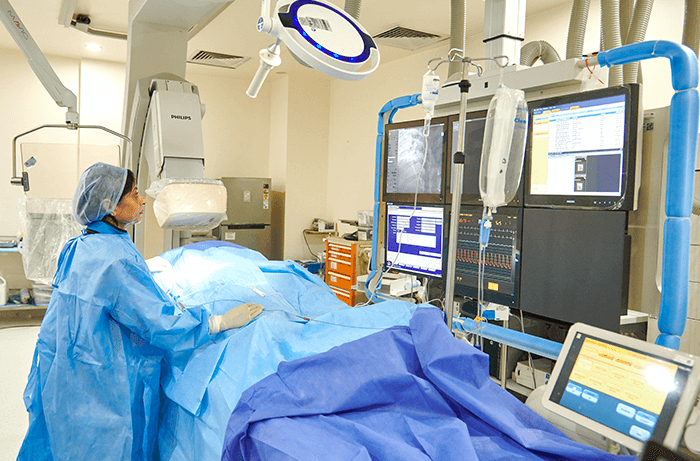×
Select Your Country
 International
International

×
Select Your Country
 International
International


Under your ribs, on the upper left side of your belly, is an organ called the spleen. It aids in the battle against infection and removes waste products from your blood, such as old or broken blood cells. Your spleen can be removed through surgery, known as a splenectomy. When the spleen ruptures, develops malignancy, or develops Idiopathic Thrombocytopenic Purpura (ITP), an autoimmune disease that affects the blood cells, this is done. Patients who have their spleen removed can resume their usual lives. The splenic vein, also known as the splenic vein, is severed from the portal vein and reattached to the renal vein in the left kidney during a distal splenorenal shunt procedure. Your varices (the huge, swelling veins that form across the stomach and oesophagus) will be under less strain after this operation, and the bleeding and clotting will be under control.
Choosing Manipal Hospitals
Our specialty is performing transplant surgeries, and we are skilled at carrying out extremely difficult procedures. To diagnose and organise the best procedure in the patient's best interest, our integrated team of oncologists, onco and transplant surgeons, intensivists, immunologists, and counsellors works together. At Manipal Hospital, quaternary care is a hot topic, and we take pride in providing the best specialist care available. Visit Manipal Hospitals to know more about Splenectomy And Shunt Surgeries treatment.
Solutions for Splenectomy and Shunt Surgeries
The only way to avoid difficulties brought on by a damaged or malignant spleen is by splenectomy. Patients who have hospital-based surgery can resume their normal lives thereafter.
Complexities of Splenectomy and Shunt Surgeries
Having ascites could be dangerous. In the abdomen, there is a buildup of fluid. Diuretic medicines and salt restriction are two treatments for this illness.
Number of Cases
To date, we have performed 3 lakh shunt procedures and well over 5 lakh splenectomies. Book an appointment at our best organ Transplant Hospital in India.
Infection Control Protocol
The dedication to treating cancer patients at Manipal Hospitals goes far beyond organ removal and transplantation to include a stringent focus on patient infection control measures.